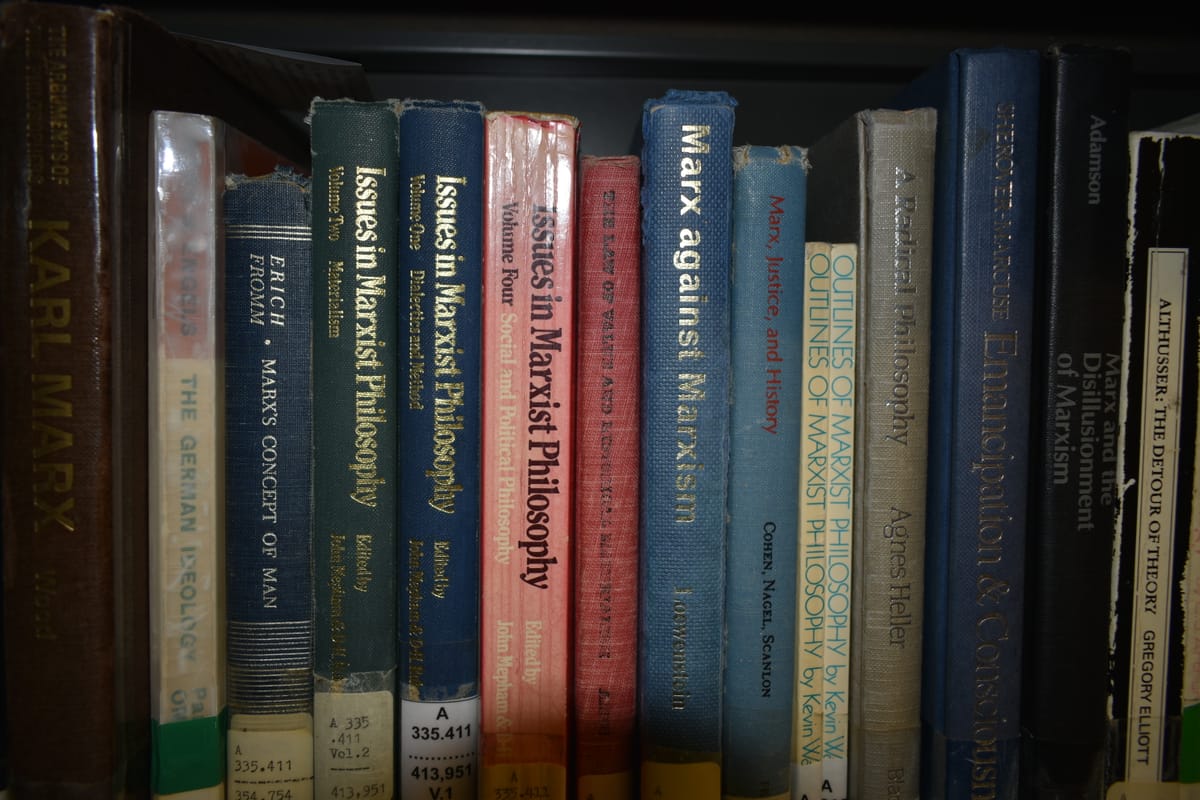Flagging of Left-wing Essay by Prevent Causes Academic Outcry

Frances Everett, BA International Relations and Development Studies
News Editor of The SOAS Spirit
Students at the University of Reading have been told to take “extreme precaution” when reading an assigned left-wing academic text after it was flagged as “sensitive material” under the Prevent programme.
This flagging of a text, which is described by Waqas Tufail (a senior lecturer at Leeds Beckett University) as being a “mainstream” academic essay, has caused an outcry in the academic community. Tufail described it as a “hugely concerning” move.
Prevent is part of the UK government’s counter-terrorism strategy which requires universities to monitor access to ‘extremist’ material by students and academics. It is aimed at stopping the spread of extremism before it develops into terrorist activity.
As a result of the policy, students were warned not to access the text on personal devices and were instructed to read it in a secure setting, where it cannot be spotted by “those who are not prepared to view it.”
The essay in question was of a left-wing nature, penned by the late Professor Norman Geras. The text is titled “Our Morals: The Ethics of Revolution” which explored the ethics of socialist revolution. It was listed as essential reading for third-year students studying the Justice and Injustice politics module at the University of Reading.
A number of prominent academics have come out in opposition to this usage of the Prevent policy, arguing that it curtails academic freedom. Tufail, who wrote a report on Prevent last year, said that: “This text was authored by a mainstream, prominent academic who was well-regarded in his field, who was a professor at Manchester for many years and whose obituary was published in the Guardian. This case raises huge concerns about academic freedom and students’ access to material, and it raises wider questions about the impact of Prevent.”
In this case, the text was actually highlighted as being “sensitive material” by an academic convening the course. Tufail argued, “This is almost worse because it means academics are now engaging in self-censorship.”
“Normal topics that are discussed as a matter of course in our educational spaces are being treated as criminal.”
Illyas Nagdee, the Black Students’ Officer for the National Union of Students argued that the case highlighted the “misunderstanding of the [counter-terrorism guidance].” Nagdee continued by saying: “Prevent fundamentally alters the relationship between students and educators, with those most trusted with our wellbeing and development forced to act as informants. As this case shows, normal topics that are discussed as a matter of course in our educational spaces are being treated as criminal.”
In response to the criticism, the University of Reading stated, “Lecturers must inform students in writing if their course includes a text deemed security-sensitive, and then list which students they expect will have to access the material.” They emphasised, “As laid out in the Counter-Terrorism and Security Act 2015, the University of Reading has put policies in place to take steps to prevent students from being drawn into terrorism.” But Fahid Qurashi, an academic from Staffordshire University, argued that this anti-terrorism policy is “being applied far beyond its purview.”
This case forms part of the wider discussion surrounding counter-terrorism strategies on university campuses across the UK.
The SOAS Students’ Union has come out in opposition to the policy, maintaining that there is a need to defend freedom of speech on campus so that ideas can freely be discussed and challenged. The Union’s statement on the matter also highlights that the policy may demonise Muslim and BME students and victimise those with mental health issues.
The counter-terrorism police behind the Prevent strategy maintains that the policy does not harm minority groups and that there is “no reliable evidence” to suggest that Prevent curtails free speech on campus, despite criticism from numerous academics.
Photo Credits: The SOAS Spirit




